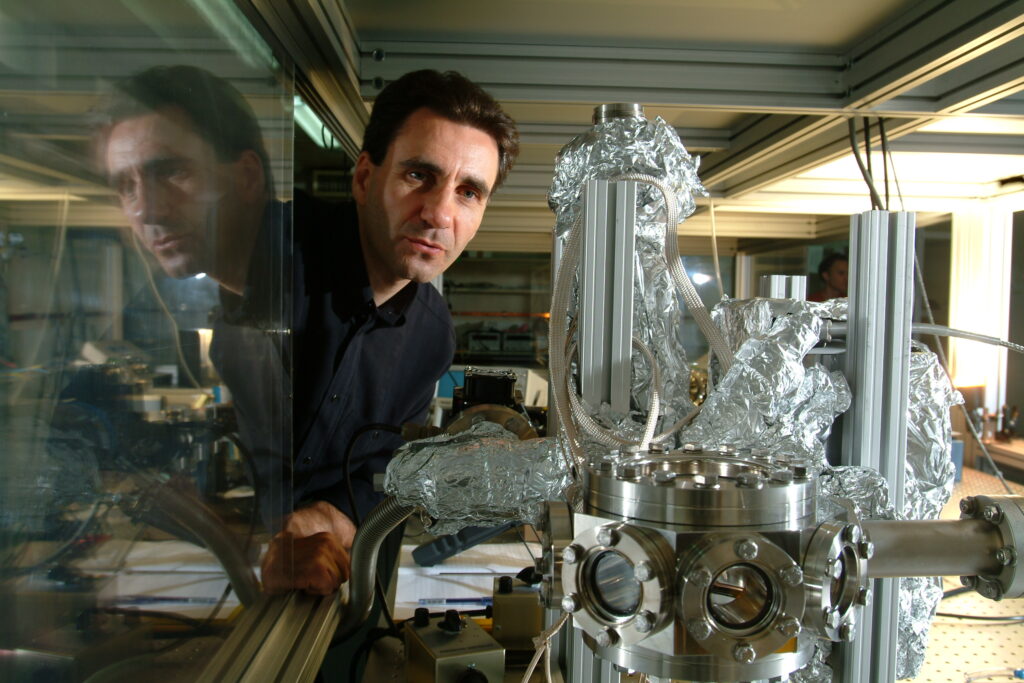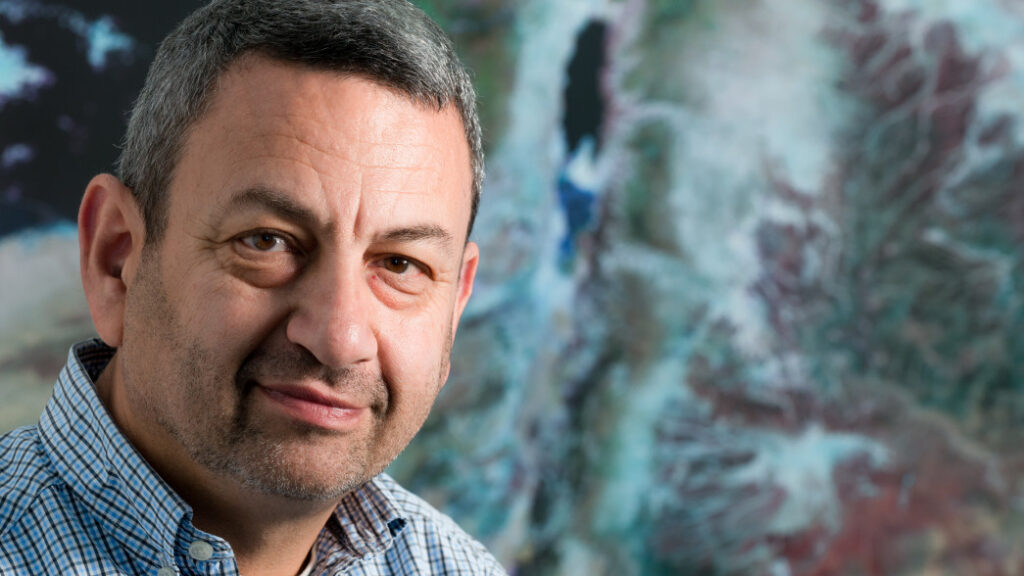
BGU Awarded Grant to Develop Ultra Thin Night Vision Glasses
BGU Awarded Grant to Develop Ultra Thin Night Vision Glasses
November 30, 2012
Homeland & Cyber Security, Nanotechnology, Press Releases
BEER-SHEVA, Israel, November 30, 2012 – A team led by Ben-Gurion University of the Negev has received a $6.5 million grant to develop thin film nanocoating for night vision glasses. The three-year grant is from the Israel National Nanotechnology Initiative (INNI).
Existing night vision systems are cumbersome, often inches thick, very heavy, expensive, and require a power supply. The nano glasses will be only a few microns thick and will operate over any eyewear.
“We will use a smart layer based on nano-photonics technologies to change invisible light to visible,” explains Prof. Gabby Sarusi, a new member of the University’s Ilse Katz Institute for Nanoscale Science and Technology and BGU’s Homeland Security Institute.
“I know what the layer architecture should be and have selected the best builder for every aspect of the glasses. The result will be like seeing at night with full moonlight,” says Sarusi.
The nano glasses will consist of multiple layers of nano-colloid material that absorb the infrared light (using advanced nano-photonic techniques) and convert it to visible light using highly efficient OLEDs (organic light emitting diodes).
“We are taking advantage of night glow as our illuminator to visualize using short wave infrared light spectrum. This is unlike night vision goggles that only amplify visible light and are therefore vulnerable to ‘dazzling’,” Sarusi explains.
“In addition to the vastly improved optics and ergonomics of an extremely thin lens, the technology will be far less expensive, costing hundreds versus thousands of dollars per pair of night vision goggles.”
Prior to joining BGU, Sarusi spent 17 years at Elop, a defense-oriented electro optics company that merged with Elbit Systems in 2000. At Elop, Sarusi was in charge of developing the next generation of thermal imaging night vision systems, as well as airborne and space-borne cameras for Israel’s aerial photography, Ofek satellites and hyperspectral airborne intelligence systems.
“The Ilse Katz Institute for Nanoscale Science and Technology is the only institute to be awarded more than one flagship project under the second INNI program. This reaffirms the outstanding level of research in nanotechnology at BGU,” says Prof. Yuval Golan, the Institute’s director.
Sarusi will lead the team of researchers which includes top scientists throughout Israel. The interdisciplinary team from BGU includes Prof. Yuval Golan and Prof. Gabriel Lemcoff, head of BGU’s Department of Chemistry, among others.
Also part of the team are: Prof. Michael Bendikov from the Weizmann Institute of Science; Prof. Gil Markovich, Tel Aviv University; Prof. Amir Sa’ar and Prof. Uriel Levi, at the Hebrew University of Jerusalem; as well as Prof. Efrat Lifshitz from the Technion – Israel Institute of Technology.
“We are very excited about this prestigious grant to develop technology that will save lives and provide greater mobility for military and other applications,” says Doron Krakow, executive vice president of American Associates, Ben-Gurion University of the Negev.
“Prof. Sarusi is a significant new addition to BGU’s faculty and will make major contributions within our nanotechnology and homeland security institutes.”
American Associates, Ben-Gurion University of the Negev
American Associates, Ben-Gurion University of the Negev plays a vital role in sustaining David Ben-Gurion’s vision, creating a world-class institution of education and research in the Israeli desert, nurturing the Negev community and sharing the University’s expertise locally and around the globe. With some 20,000 students on campuses in Beer-Sheva, Sde Boker and Eilat in Israel’s southern desert, BGU is a university with a conscience, where the highest academic standards are integrated with community involvement, committed to sustainable development of the Negev.
| Media Contact: | Andrew Lavin A. Lavin Communications 516-944-4486 [email protected] |
ABOUT AMERICANS FOR BEN-GURION UNIVERSITY
By supporting a world-class academic institution that not only nurtures the Negev, but also shares its expertise locally and globally, Americans for Ben-Gurion University engages a community of Americans who are committed to improving the world. David Ben-Gurion envisioned that Israel’s future would be forged in the Negev. The cutting-edge research carried out at Ben-Gurion University drives that vision by sustaining a desert Silicon Valley, with the “Stanford of the Negev” at its center. The Americans for Ben-Gurion University movement supports a 21st century unifying vision for Israel by rallying around BGU’s remarkable work and role as an apolitical beacon of light in the Negev desert.
About Ben-Gurion University of the Negev
Ben-Gurion University of the Negev embraces the endless potential we have as individuals and as a commonality to adapt and to thrive in changing environments. Inspired by our location in the desert, we aim to discover, to create, and to develop solutions to dynamic challenges, to pose questions that have yet to be asked, and to push beyond the boundaries of the commonly accepted and possible.
We are proud to be a central force for inclusion, diversity and innovation in Israel, and we strive to extend the Negev’s potential and our entrepreneurial spirit throughout the world. For example, the multi-disciplinary School for Sustainability and Climate Change at BGU leverages over 50 years of expertise on living and thriving in the desert into scalable solutions for people everywhere.
BGU at a glance:
20,000 students | 800 senior faculty | 3 campuses | 6 faculties: humanities & social sciences, health sciences, engineering sciences, natural sciences, business & management, and desert research.
For all press inquiries, please contact:
James Fattal, J Cubed Communications
516.289.1496



